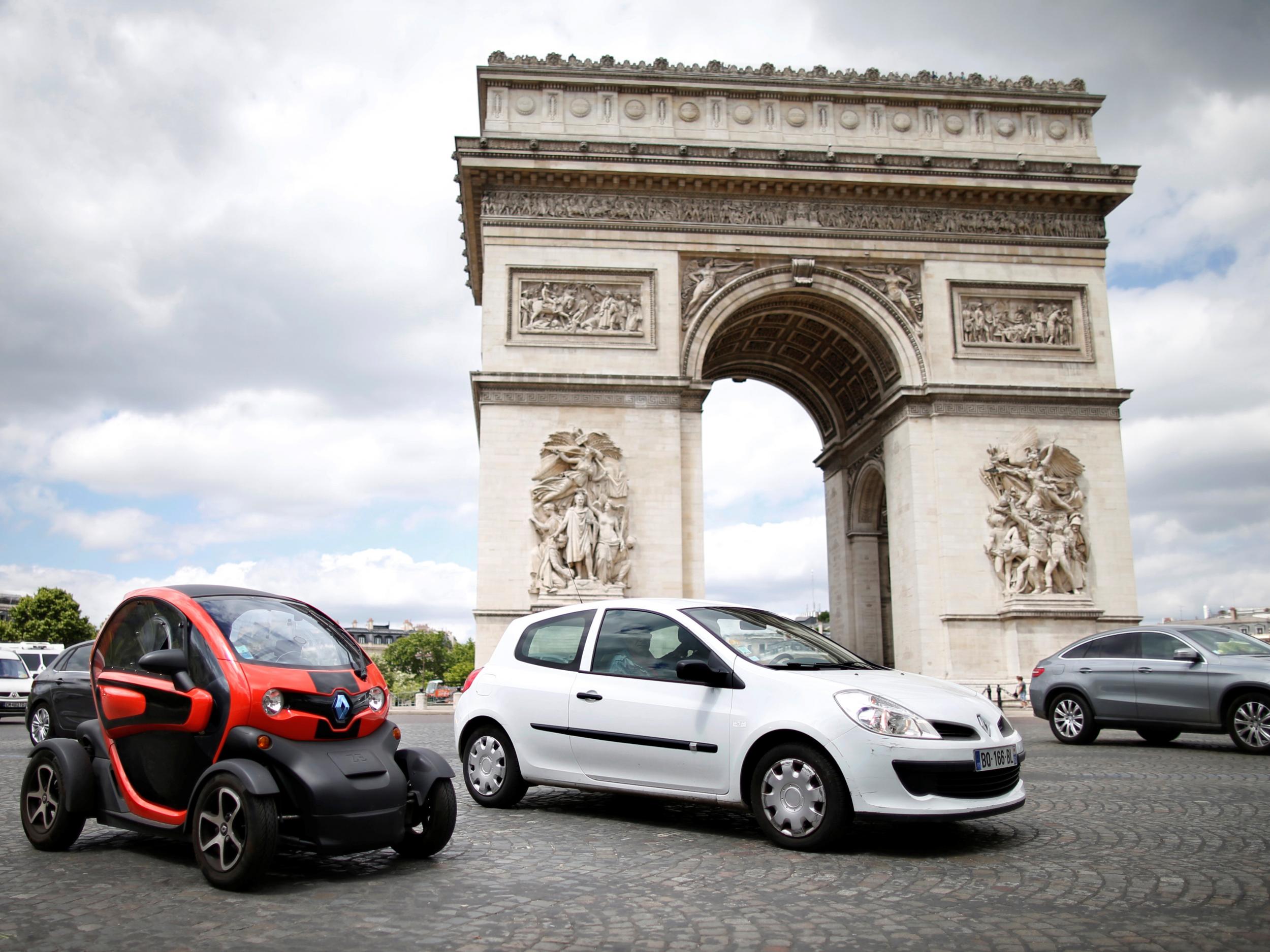EU steps up electric car push to close 'huge gap' on China
The European Commission is looking to give incentives to car manufacturers in a bid to spur electric car production

Your support helps us to tell the story
From reproductive rights to climate change to Big Tech, The Independent is on the ground when the story is developing. Whether it's investigating the financials of Elon Musk's pro-Trump PAC or producing our latest documentary, 'The A Word', which shines a light on the American women fighting for reproductive rights, we know how important it is to parse out the facts from the messaging.
At such a critical moment in US history, we need reporters on the ground. Your donation allows us to keep sending journalists to speak to both sides of the story.
The Independent is trusted by Americans across the entire political spectrum. And unlike many other quality news outlets, we choose not to lock Americans out of our reporting and analysis with paywalls. We believe quality journalism should be available to everyone, paid for by those who can afford it.
Your support makes all the difference.Electric-car production in the European Union will get a spur on Wednesday when EU regulators act to close a technological gap with China by seeking stricter emission curbs on manufacturers such as Volkswagen and Fiat Chrysler.
The European Commission, the EU’s regulatory arm, intends to propose caps on car discharges of carbon dioxide for 2025 and 2030 as part of a stepped-up fight against global warming. The plan, which would progressively tighten existing CO2 limits, will feature incentives for carmakers to shift to electric vehicles, a top commission official said.
“There’s a component of trying to facilitate the development of a powerful car-manufacturing industry of electric vehicles,” Miguel Arias Canete, EU climate and energy commissioner, said in an interview Tuesday in his Brussels office. “There will be a race for developing clean-energy vehicles. We are seeing that others are taking the global lead.”
Europe is gearing up for a technological revolution in road transport that would push the traditional internal combustion engine from showrooms into museums in a bid to retain leadership in the worldwide market for passenger cars.
The commission is taking advantage of the landmark climate-protection agreement reached by almost 200 countries in Paris in late 2015 to get a grip on European road-transport pollution, which has bucked a general trend of falling EU discharges of greenhouse gases including CO2 that are blamed for climate change. Under the Paris accord, the EU aims to slash such pollution by at least 40 per cent in 2030 compared with 1990.
As China expands its electric-vehicle prowess with the blunt policy of quotas, Europe is counting on a more nuanced approach that would force carmakers to choose between making the combustion engine cleaner or abandoning it in favour of electric vehicles.
The Chinese market already boasts 400 types of electric vehicles, whereas Europe has six, according to Mr Canete. India, meanwhile, aims for all new passenger cars sold by 2030 to be electric.
“There is a huge gap between the European Union, which invented the car, and developing countries,” Mr Canete said. “This proposal has this element of incentives in order to induce car manufacturers to come along with a substantial number and a substantial variety of electric vehicles.”
The commission proposal, which will need the approval of EU governments and the European Parliament in a process that usually takes more than a year, will also include €800m (£706m) for the development of infrastructure to charge electric cars, he said.
The planned incentives for electric-vehicle production will take the form of credits against the stricter CO2 targets. The EU’s current caps on CO2 from cars are 130 grammes a kilometre set for 2015 and 95 grams fixed for 2021.
The existing limits are averages for the EU fleet as a whole, with individual manufacturers having specific targets backed by financial penalties.
The system of penalties for breaches will remain in place for the 2025 and 2030 limits, according to Mr Canete, who declined to say what the proposed stricter curbs would be.
Bloomberg
Join our commenting forum
Join thought-provoking conversations, follow other Independent readers and see their replies
Comments